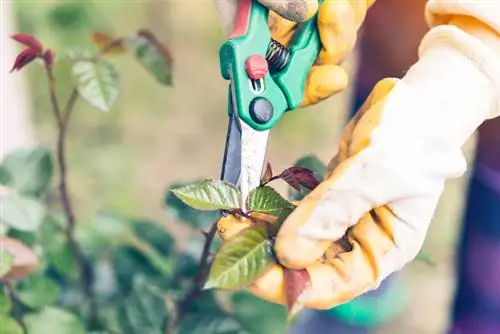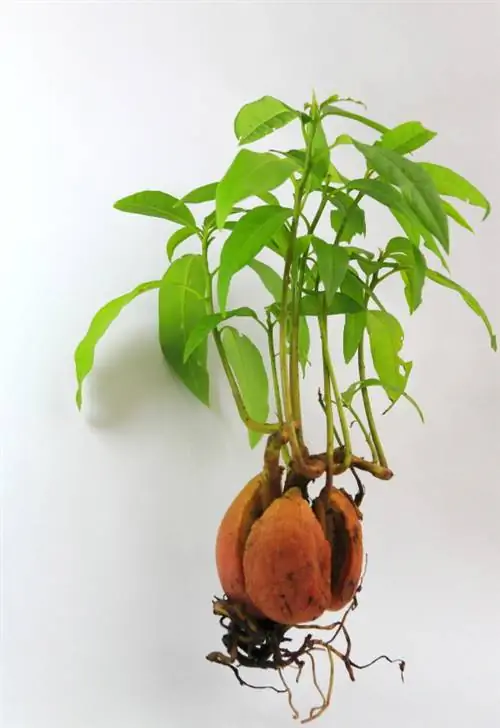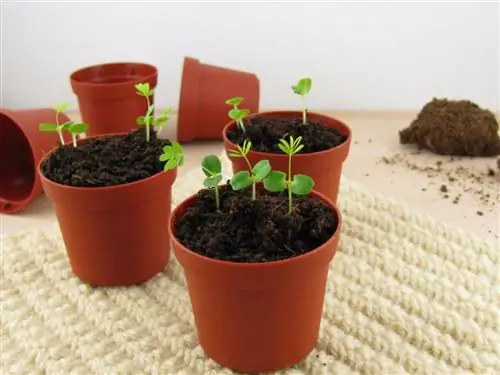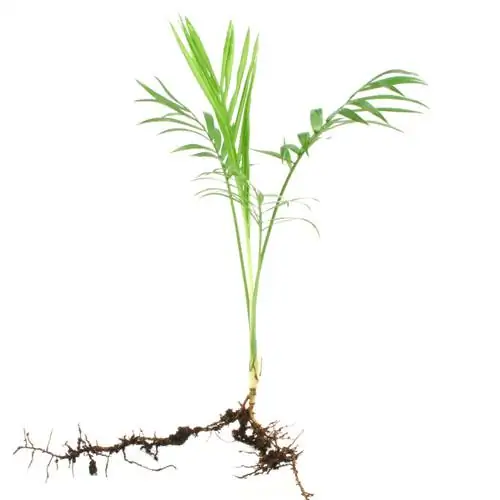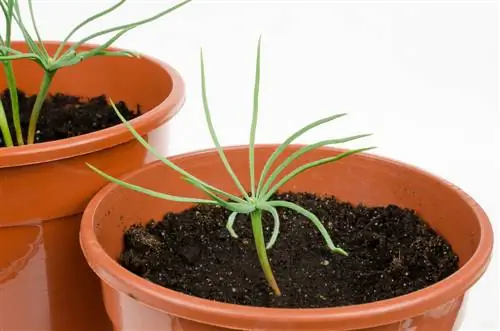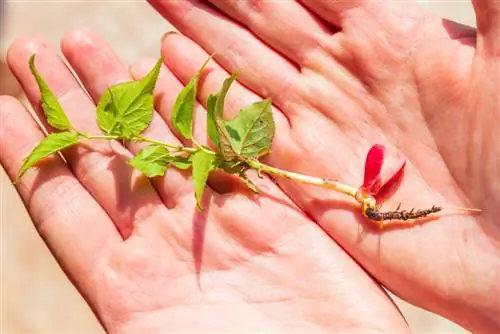- Author admin leonars@hobbygardeners.com.
- Public 2023-12-16 16:46.
- Last modified 2025-01-23 11:20.
Do you have a particularly beautiful variety of rose in your garden, but you don't know what it is called and would like to breed it? Or are you looking with covetous eyes at the wonderful roses in your neighbor's garden and would like to have these wonderful specimens too? Then quickly get suitable plant material from the mother plant and start growing these flowers again.
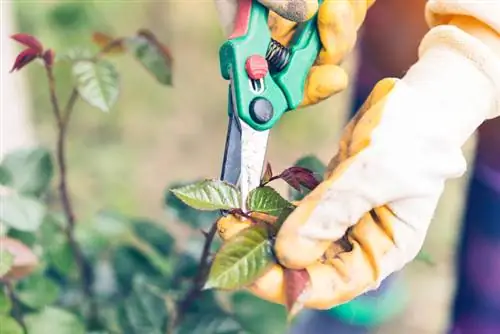
How can roses be bred successfully?
Roses can be propagated by cuttings, seed propagation or grafting. Cuttings are clones of the mother plant, while seed or graft breeding can produce different results. However, please note the variety protection of some rose varieties.
Propagate noble roses with cuttings
The easiest way to breed is to propagate from cuttings, which also works with non-rooted roses - after all, the genetic information for flowers and fragrance is not in the roots, but in the shoots. Shortly after flowering, cut off a shoot with a faded flower and root it, then you have already created a clone of the mother plant. There are various methods for rooting, as rose cuttings can be rooted both in a glass of water and in the ground. Propagation via cuttings often works very well.
Can noble roses be propagated by seeds?
If you want to propagate roses from seeds, you will of course first need rose hips. Not all rose species and varieties produce these fruits, which is why seed propagation is not always possible. But even if your rose gets rose hips, that doesn't mean that the resulting offspring will look exactly like the mother plant. In contrast to cuttings, mutations can occur in seeds or the legacy of even distant ancestors of the rose can be broken again. Seedlings are not varietal; unless it is a wild form. But this can suddenly look different than the parent rose, namely if the flowers were pollinated with pollen from a different variety or species. In addition, rose seeds usually always grow into wild roses, not noble roses - these would therefore have to be obtained through vegetative propagation.
Refine roses yourself
Of course you can also refine roses yourself and breed them that way. Refining is actually not that difficult, as long as you know a few techniques and work cleanly and with sensible (and sharp!) tools. Roses are mostly inoculated, i.e. H. The breeder transfers a rose eye to a mostly wild rootstock. However, the plants can also be grafted, with an entire shoot being transferred.
Tip
Caution: Many rose varieties have variety protection, i.e. H. You can't just breed them or propagate them yourself and then pass them on or even sell them. By doing so, you are committing a criminal offense (keyword: copyright law), as the rose breeders rightly want their years of efforts rewarded.

